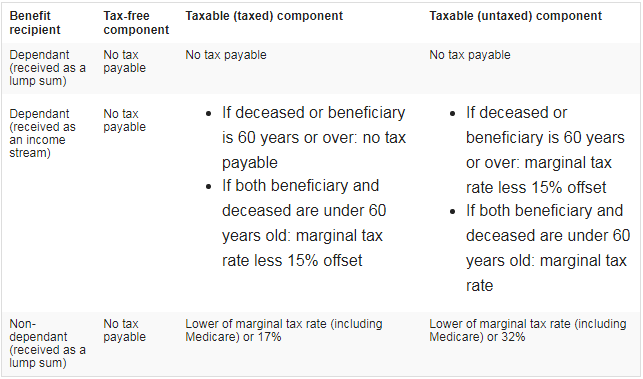MoneySmart
(ASIC)
When a person dies, their super balance is usually paid to their nominated beneficiary. This is called a ‘super death benefit’. Superannuation benefits are typically made up of two components: tax-free and taxable (which may come from a taxed or untaxed source).
The tax-free component includes:
After-tax contributions
Government co-contributions.
The taxable (taxed) component consists of:
Employer contributions
Salary sacrificed contributions
Personal contributions where a tax deduction was claimed.
The taxable (untaxed) component only applies to super from an untaxed source, such as a public sector defined benefit super fund for government employees.
Super death benefits tax
The amount of tax a beneficiary pays is determined by:
The super component
Whether they are a dependant for tax purposes
Whether the super is taken as a lump sum or an income stream (non-dependants can only receive a super death benefit as a lump sum).
Tax treatment for each super component of a death benefit


